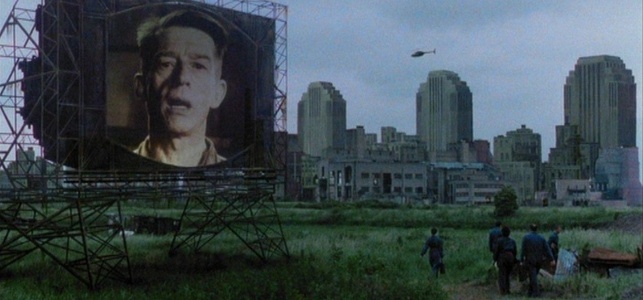There are those who benefit from presenting a narrative that everything is fine, even when many are struggling. Politicians and media outlets often craft messages that align with their interests, catering to the desires of those in power or corporate backers. Their focus is on maintaining stability in the markets, keeping the public calm, and projecting confidence to avoid panic. This can create a massive disconnect between the lives of everyday people and the world these voices describe.
They see the world through a lens shaped by privilege, wealth, and isolation from the struggles of the average person. Often, they are surrounded by like-minded individuals who share their reality—high salaries, private healthcare, and a lifestyle far removed from those hit hardest by rising costs. These decision-makers don’t face the immediate consequences of inflation or joblessness, so they can afford to believe, or at least promote, that things are on the right track.
Their narrative takes shape in press conferences, media reports, and political speeches, aiming to reassure and uphold the status quo. They speak to a future that promises recovery, yet they overlook the present reality for millions. Why? Because they are invested in keeping the system afloat, a system that serves them well. The disparity between their world and the majority’s reality is a product of selective vision and interest in preserving power.
This happens in economic downturns, where those with influence continue to thrive while the rest are told to weather the storm. Their optimistic view serves their own agendas, but it is far from the truth experienced by those struggling to afford basic needs. To maintain their narrative, they often blame outside forces—foreign wars, pandemics, or unforeseen crises—rather than confront systemic issues closer to home.
The struggling common citizen is often left feeling powerless in the face of these overwhelming economic pressures and the polished narratives coming from those in power. However, there are steps that can be taken, even in such difficult circumstances.
First, community building is essential. By connecting with others who are also facing challenges, people can share resources, support each other, and create networks of mutual aid. It’s through these local connections that real resilience can grow.
Second, the common citizen must become more informed, not relying solely on mainstream media, but seeking out independent sources of news and information that offer a broader, more honest picture of what's happening. This helps in understanding how policies directly affect their lives and gives them the tools to challenge misleading narratives.
Third, political engagement can be powerful, even at a small scale. Voting for local representatives who truly understand the struggles of their community, participating in grassroots movements, or even just having conversations with neighbors about these issues can slowly bring about change. While it might not seem like much, each action chips away at the structures that keep citizens feeling isolated and powerless.
Finally, personal adaptation is necessary in hard times. People may need to make tough decisions—cutting back on non-essential spending, learning new skills, or seeking alternative employment. While this doesn't fix the broader issues, it helps individuals survive while pushing for systemic changes.
As cities teeter on the brink of financial collapse, the harsh reality of a broken system begins to surface. The domino effect is real: banks hold foreclosed properties, cities lose their commercial tax base, and residents are left to shoulder the financial burden through rising property taxes and diminished services. Excessive borrowing and lending, coupled with reckless spending, have hollowed out many communities, leaving behind a fragile economic foundation.
Unemployment rates continue to rise, fixed-income households are squeezed by inflation, and crime and homelessness are becoming everyday problems. All of this is happening while certain media and political figures downplay or outright deny the severity of the crisis. They present a narrative of recovery or progress, seemingly detached from the ground-level realities faced by everyday citizens.
This collective mindset, one of avoidance and delusion, has its roots in both ignorance and manipulation. People, institutions, and even governments often cling to comforting illusions, reinforced by media and leadership, rather than face uncomfortable truths. When enough people believe the deception, the false narrative becomes reality for them, even as the world crumbles around them.
The future ahead is uncertain, with many cities likely to fall into deeper disrepair. The gap between those who benefit from the current system and those who suffer from it is widening. If the collective mindset remains stuck in denial, the problems will only grow worse, leaving individuals, communities, and institutions scrambling for solutions in a world that seems increasingly out of control. Only by recognizing and breaking free from these illusions can real progress be made.

